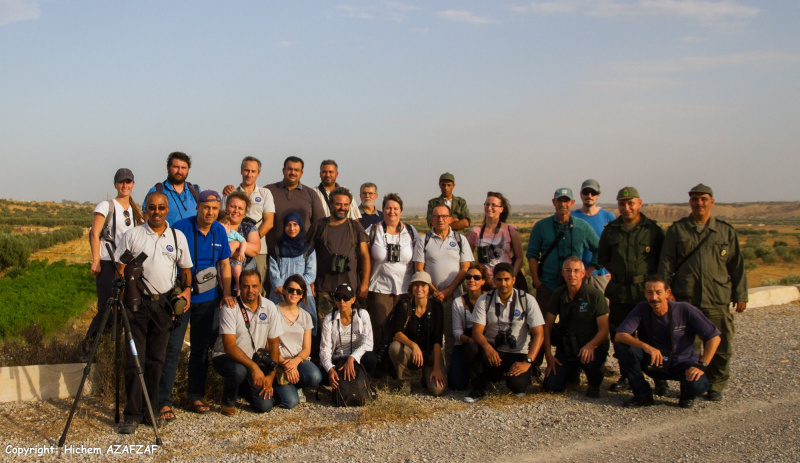In 2017, the regional workshop on the International Waterbird Census (IWC) in North Africa was held from the 15th to the 17th of September in Tunis, Tunisia. On the last two days, the first Mediterranean Waterbird Network (MWN) meeting involving countries from the northern Mediterranean took place.
It was organized in the framework of the regional support programme on IWC and wetland conservation in the Mediterranean initiated by the research centre of Tour du Valat, the French National Game and Wildlife Agency (ONCFS), Wetlands International (WI), the French Ministry of Ecology and MAVA Foundation. The workshop brought together representatives of the IWC national coordinators from the five North African countries (Morocco, Algeria, Tunisia, Libya and Egypt). For the first time, national coordinators from other six northern Mediterranean countries were invited for a huge meeting on the 16th and 17th September: Spain, France, Italy, Macedonia, Greece and Turkey. Unfortunately, Greece could not participate.
Topics of the IWC workshop with the five North African countries
The workshop offered the opportunity to discuss several topics, in particular:
- achievements of the MWN since the previous meeting in 2016;
- the results of the discussions from the three days of working on the next scientific article;
- discussion on the state of progress of the Medwaterbirds website and the modifications to be made to it;
- discussions on the future prospects of the network.
First MWN workshop including northern Mediterranean countries
For the first time, it was possible to include other countries from the Mediterranean basin besides Italy, which has been linked to the network for years. The participation of five other countries enabled the discussion on common interests and benefits of working at the pan-Mediterranean scale.
During the meeting, the MWN and the Medwaterbirds platform were presented. After that, all invited countries - the five North African countries and the six countries from the northern Mediterranean (including Greece, that sent a presentation) illustrated their IWC data.
Finally, the initial results of the species conservation status report (CSR) were presented and further discussions were made, leading to the conclusion of the workshop.
For further information, read the report of the workshop.





.png)
